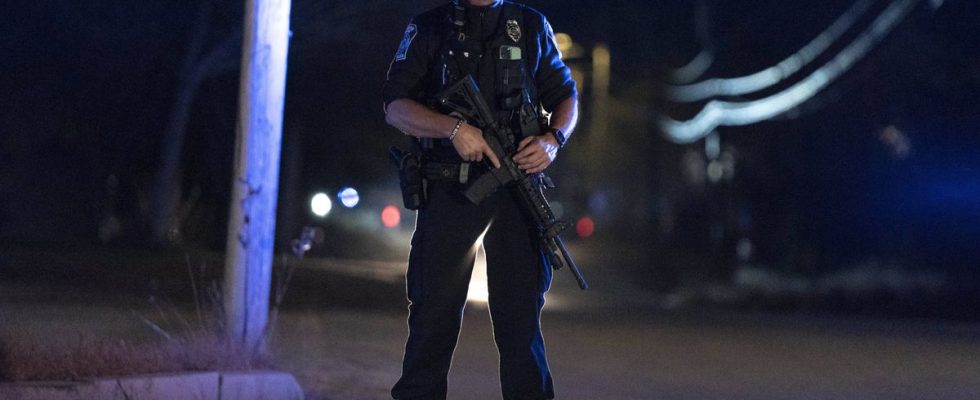The perpetrator of the shootings that left 18 dead in Maine, in the United States, suffered from significant mental disorders to the point where one of his colleagues feared that he would commit a “mass killing”, according to new official documents released public on Tuesday.
According to these documents, initially obtained by the daily Boston GlobeRobert Card’s ex-wife and son also told local police last May that he had become paranoid, “heard voices” and had stored up to 10 or 15 guns at his brother’s house.
Two shootings ten minutes apart
Armed with a semi-automatic rifle, Robert Card opened fire on October 25 in a bowling alley in Lewiston, then about ten minutes later, in a bar-restaurant in this town of 36,000 inhabitants in the northeast of the United States. United, killing 18 people and injuring 13.
The body of the 40-year-old Army reservist was discovered the evening of Oct. 27 in a tractor-trailer in the parking lot of a recycling company he had worked for, said Michael Sauschuck, public safety official. of Maine, specifying that Robert Card had committed suicide with a firearm.
All of the killer’s weapons were purchased legally
In all, seven people lost their lives in the bowling alley, eight in the bar-restaurant and three injured people died in hospital. The victims ranged in age from 14 to 76 years old.
Police recovered three firearms, two near Robert Card’s body and one in his car which was parked nearby. All were purchased legally, because Robert Card had never been the subject of an involuntary psychiatric hospitalization, the authorities had indicated.
Sent to a psychiatric unit for two weeks
But according to the new documents, the American reserves sent Robert Card to a psychiatric unit last July, where he remained for two weeks, after the latter had made threats towards fellow reservists.
In a letter sent in September to the local sheriff’s office, the US Army Reserve indicated, based on the testimony of one of Robert Card’s reservist colleagues, that the latter was at risk of “blowing out” and to “perpetrate a mass killing”.
Armed with this information, the sheriff’s office had informed Robert Card’s family that it could try to keep him away from his weapons, but had not mandated law enforcement agents to confiscate them, continue these documents.

